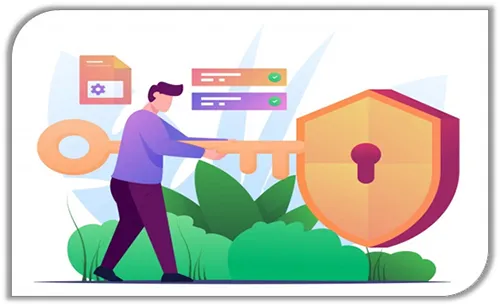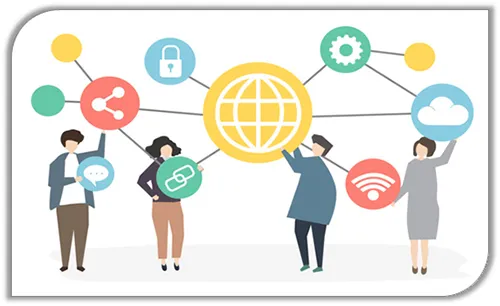
Menu

Menu

The outbreak of the coronavirus pandemic has profoundly disrupted our lives in ways we haven’t imagined. As a result, we are gradually adjusting to the new normal practices, which include social distancing, enhanced sanitization, and an entirely new work environment. Furthermore, all these changes together present HR professionals with a whole new set of challenges that require them to redefine their job roles. Consequently, many companies have swiftly transitioned their work environments to virtual platforms at a faster rate and scale than ever before. This rapid shift not only underscores the importance of adaptability but also highlights the critical need for effective HR leadership in navigating these unprecedented times.

All face-to-face collaborations and joint projects have now been transformed into emails and video conferencing. Consequently, HR professionals are not just presented with an additional opportunity to manage paperwork; instead, they are tasked with providing solace and support to numerous workers during these challenging times. Moreover, their roles extend beyond traditional boundaries as they strive to keep employees productive, connected, engaged, and motivated. Thus, HR professionals must leverage innovative strategies and tools to foster a positive work environment that prioritizes employee well-being and ensures sustained productivity.
Let’s lift the curtain to explore the roles that HR professionals are eager to step into as we adapt to the new virtual normal. This shift signifies a fundamental change in job dimensions, beginning with the onboarding practices, rewards and recognition policies, engagement initiatives, and exit processes, among others. Moreover, these transformations are not merely procedural; they represent a significant evolution in how HR interacts with employees and fosters a culture of engagement and motivation. Therefore, embracing these changes can lead to enhanced employee experiences and a more resilient organization overall.

Time has become a precious commodity during this outbreak, as all social gatherings—such as birthday parties, movie outings, sports clubs, bars, gyms, festivals, and concerts—have been put on hold for the time being. Consequently, HR professionals should take the initiative to encourage every employee within their organization to utilize this extraordinary time effectively. By fostering a culture of continuous learning, HR can motivate employees to upskill or reskill themselves, thus enhancing their personal and professional growth. Additionally, this investment in employee development not only prepares the workforce for future challenges but also strengthens the overall competency of the organization.
The coronavirus has undeniably disrupted the way we work. In fact, the working environment in this new normal has shifted significantly to become more virtual than the traditional office setup. As a result, many routines have been interrupted drastically, leading to the necessity of forming new workflows and procedures to fulfill our day-to-day tasks and activities within the organization. Moreover, this transition to a virtual environment has compelled employees and HR teams alike to adapt quickly and embrace innovative solutions that enhance productivity and collaboration. Consequently, organizations must prioritize flexibility and agility in their processes to thrive in this evolving landscape.

Small and medium organizations often struggle with the adaptation of slow procedures, cumbersome bureaucracies, and fluid hierarchies. Consequently, employees frequently find themselves working without direct supervision, which can be both a challenge and an opportunity. To effectively cope with this challenge, HR should emphasize this change as a positive aspect, enabling every employee to have the freedom and space for innovation. Moreover, by fostering a culture of trust and empowerment, organizations can encourage employees to take initiative, explore new ideas, and contribute to the overall success of the team. In doing so, HR can help create an environment where creativity flourishes and organizational goals are met more efficiently.
We all need to humbly acknowledge that, as humans, we do not have control over many aspects of our lives. Consequently, the mantra “We are all in this together by staying apart” should guide us for at least the next year. In light of this, it is essential to unite people and create awareness while initiating wellness policies that reach every employee’s desk. Furthermore, fostering greater coherence among teams is crucial to managing individuals effectively and ensuring they maintain the same enthusiasm and motivation. This, indeed, presents a significant challenge that every HR professional must navigate in today’s evolving landscape. By prioritizing connection and support, HR can help employees feel valued and engaged, ultimately contributing to a healthier work environment.
Reinventing the entire process entails creating a cleaner environment that supports the new virtual workflow. Additionally, it involves enhancing the onboarding experience to ensure that new hires feel welcomed and engaged from day one. By implementing streamlined digital processes, HR can deliver all mandated services efficiently and without hassle. This transformation not only simplifies administrative tasks but also improves overall employee satisfaction. As a result, organizations can foster a more positive work culture that adapts to the evolving needs of both employees and the business itself. Embracing these changes will ultimately lead to a more agile and resilient workforce, ready to face future challenges head-on.

In today’s rapidly changing landscape, innovation has become crucial for HR departments. As organizations navigate the challenges posed by the pandemic, HR professionals must rethink traditional practices and embrace new ideas. By fostering a culture of innovation, HR can not only enhance employee engagement but also streamline processes that benefit the entire organization. Furthermore, this shift towards innovative thinking empowers HR leaders to identify and implement solutions that address current challenges while preparing for future uncertainties.
As remote work becomes the norm, creating effective platforms for collaboration is essential. Organizations must leverage digital tools that facilitate seamless communication among employees, regardless of their location. By utilizing video conferencing, chat applications, and collaborative software, HR can help maintain connections and ensure that team members feel engaged. Moreover, fostering an environment that encourages collaboration leads to improved teamwork and enhances overall productivity, which is vital in today’s fast-paced work environment.
To further promote innovation, HR leaders should implement systems for recognizing and rewarding employees who contribute new ideas and solutions. By highlighting the achievements of innovative team members, organizations can motivate others to think creatively and share their insights. Additionally, establishing formal recognition programs not only boosts morale but also reinforces the idea that innovation is valued within the company culture. This approach ultimately leads to a more dynamic workforce that is eager to contribute to the organization’s success.
The integration of technology into HR processes is vital for increasing efficiency and effectiveness. By adopting modern HR management systems, organizations can automate various tasks, such as payroll processing and employee record management. This automation not only saves time but also reduces the likelihood of human error. Furthermore, leveraging analytics and reporting tools allows HR leaders to make data-driven decisions that enhance overall organizational performance, ensuring that the HR function aligns with business goals.
In the post-COVID-19 landscape, building a dynamic and engaged workforce is more important than ever. HR must prioritize employee well-being and development by providing opportunities for continuous learning and growth. By offering training programs, mentorship initiatives, and wellness resources, organizations can help employees navigate their career paths while feeling supported. Ultimately, a well-engaged workforce is crucial for driving productivity, fostering innovation, and achieving long-term success.
In the face of ongoing challenges, fostering resilience among employees is essential for organizational success. Specifically, HR can play a pivotal role by implementing programs that equip employees with effective coping strategies and stress management techniques. For instance, by promoting mental health resources—such as counseling services and mindfulness workshops—organizations can help employees navigate uncertainty with greater ease. Additionally, by encouraging open communication and creating a supportive work environment, employees can express their concerns and seek help when needed. Consequently, resilient employees are more likely to adapt to change, remain productive, and contribute positively to the organization.
To thrive in a constantly evolving work environment, cultivating a culture of continuous feedback is crucial. Rather than relying solely on annual performance reviews, HR should actively encourage regular check-ins and open dialogues between employees and managers. This proactive approach not only allows for real-time feedback but also fosters a sense of accountability and growth. Furthermore, by implementing anonymous feedback mechanisms, organizations can help employees feel comfortable sharing their thoughts, leading to valuable insights for improvement. Ultimately, by prioritizing continuous feedback, organizations can create an agile workforce that is better equipped to respond to changes and challenges while simultaneously driving overall performance.
Digital technologies can indeed serve as a savior during these challenging times, as they provide the only viable means to operate efficiently in a remotely distributed environment. In particular, HRBluSky consolidates a wide range of functions, including employee visa management, employee travel coordination, leave policy management, payroll processing, and WPS file generation, all in one platform. This comprehensive solution significantly alleviates the burdens faced by HR professionals, enabling them to focus on more strategic initiatives that drive organizational success. By streamlining these processes, HRBluSky not only enhances operational efficiency but also empowers HR teams to better support their employees during this transition. Don’t miss the opportunity to explore this solution—check it out right away!
Alignment
Article
Audit
Automation
Benefits
Candidate
Communication
Compliance
Digitalisation
Digital Technology
Diversity
Emirates Id Application
Employee Experience
ESS
Feedback
Health and Safety
HRMS
HR Strategy
HR System UAE
Human Resource Management
Human Resource Management Systems
Job Roles
Learning and Development
Onboarding
Outsource
Payroll
Payroll Management System
Payroll Processing
Performance
Performance Management
Personalisation
Recruit
Recruiting
Recruitment
Remote Working
Rewards
Security
Service Providers
Skills
Smart
Survey
Virtual
Visa Cancellation
Work Environment
Workforce
© 2026 Pruvity HR Solutions Pvt Ltd, Madurai, India